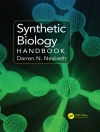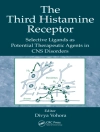Technological developments in the life sciences confront us with new facets of a Faustian seduction. Are we „playing God“ more and more, as claimed by critical authors of modernity? Achievements in genetic research produce ethical dilemmas which need to be the subject of reflection and debate in modern societies. Denial of ambivalences that ethical dilemmas arouse constitutes a threat to societies as well as to individuals. The book presents a compilation of some of the results of the interdisciplinary European study “Ethical Dilemmas Due to Prenatal and Genetic Diagnostics” (EDIG), which investigated some of these dilemmas in detail in a field which is particularly challenging: prenatal diagnosis. When results from prenatal diagnosis show fetal abnormalities, women and their partners are confronted with ethical dilemmas regarding: the right to know and the right not to know; decision-making about the remainder of the pregnancy and the desire for a healthy child; responsibility for the unborn child, for its well-being and possible suffering; life and death. This book provides answers from an ethical, psychoanalytical and medical viewpoint.
Tabela de Conteúdo
Preface.- 1 Ethical Dilemmas Due to Prenatal and Genetic Diagnostics. An interdisciplinary, European study (EDIG, 2005-2008).- 2 Managing complex psychoanalytic research projects applying mapping techniques – using the example of the EDIG study.- 3 Distress and Ethical Dilemmas due to Prenatal and Genetic Diagnostics – some empirical results.- 4 Reconstruction of pregnant women’s subjective attitudes towards prenatal diagnostics – a qualitative analysis of open questions.- 5 Prenatal testing: women’s experiences in case of a conspicuous test result.- 6 Caring for women during prenatal diagnosis: personal perspectives from the United Kingdom.- 7 Cooperation is rewarding if the boundary conditions fit: interdisciplinary cooperation in the context of prenatal diagnostics. 8 Prenatal genetic counselling: reflections on drawing policy conclusions from empirical findings.- 9 Taking risk in striving for certainty. Discrepancies in the moral deliberations of counsellors and pregnant women undergoing PND.- 10 Ethical thoughts on counselling and accompanying women and couples before, during and after prenatal diagnosis.- 11 Client, Patient, Subject; whom should we treat? On the significance of the unconscious in medical care and counselling.- 12 Decision to know and decision to act.- 13 Moral decision-making, narratives and genetic diagnostics.- 14 Prenatal diagnostics and ethical dilemmas in a mother having a child with Down syndrome.- 15 Is there one way of looking at ethical dilemmas in different cultures?- Index
Sobre o autor
This information is not necessary.












